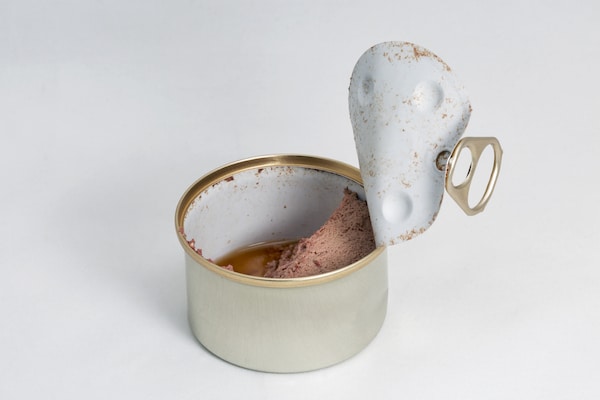You might be aware of the industrial chemical bisphenol A, commonly referred to as BPA. It’s been used as a hardening additive in plastics and resins for decades, but recent research has linked the chemical to possible adverse effects. Although the Food and Drug Administration says BPA is safe in the extremely low levels such as those that occur in some foods, concerned consumers have decided to make the switch from plastics to alternatives like glass and stainless steel, particularly with items used for cooking, storing, or consuming food. In response to consumer demand, some companies are moving to BPA-free plastics for baby bottles, cups, dishes, plastic water bottles, and more.
But should you be concerned about your dog’s BPA exposure? The answer is yes, according to a recent study published in the journal Science of the Total Environment, which analyzed the levels of BPA found in dogs fed canned food.
“The structure of BPA mimics our natural hormones, especially estrogen, which is produced by the ovary and also by the male gonad,” said the study’s corresponding author Cheryl Rosenfeld, DVM, PhD, an associate professor of biomedical sciences at the University of Missouri College of Veterinary Medicine. “We don’t know all of the effects of BPA at this point, but they include obesity, reproductive disorders, neurologic problems, and even in some cases cancer [seen in rodent models].”
The 14 healthy dogs who participated in the study were first fed only dry food from a bag so researchers could collect a baseline reading on the levels of BPA in their blood. To minimize outside exposure to BPA, the dogs were fed in metal bowls and the food was doled out with a glass measuring cup. Next, the dogs were fed one of two canned-food diets for two weeks, after which their blood was drawn again to compare against the baseline. One of the canned food brands claimed to be BPA-free; the other did not.
“Even though there was a minimal amount of BPA when they were on the dry food, it went up about three-fold when they were on the canned food,” Dr. Rosenfeld said. This finding was true for both canned food brands used in the study, including the one that was supposedly BPA-free.
We still have much to learn about BPA and its effects on people and animals. In the meantime, if you’re concerned about your dog’s BPA exposure, Rosenfeld suggests some easy steps you can take to reduce your dog’s exposure to BPA. First, look at your dog’s food.
“You have to be careful and monitor how it’s packaged,” she said. “If the packaging is plastic, it could contain BPA. Fresh is the best, frozen is OK, and then dry [kibble]. Canned food would be the least preferred [if you’re worried about BPA exposure].”
If you choose to make fresh food for your dog, follow a recipe designed by a veterinary nutritionist to ensure your dog gets all the nutrients they need. Some companies sell fresh food commercially, either refrigerated or frozen. Look for brands that don’t use plastic packaging.
Another way to reduce your dog’s exposure to BPA is to switch from plastic bowls to glass or stainless steel. Also avoid hard plastic toys and instead look for toys made of all-natural materials like cotton and hemp.
If you must use plastic, look for types that contain less BPA. “There are different types of plastics,” Rosenfeld said. “The polypropylene plastics probably have the least amount of BPA. The polycarbonate plastics are the worst for BPA.”
You might think that the phrase “BPA-free” on a package label means you are in the clear. Unfortunately, we are learning this is not necessarily true.
“They are starting to go to substitutes for BPA like BPS, but if you go into the literature now, BPS can have almost equally bad effects as BPA,” Rosenfeld said. “Just because it says BPA-free does not means it’s safe.”









